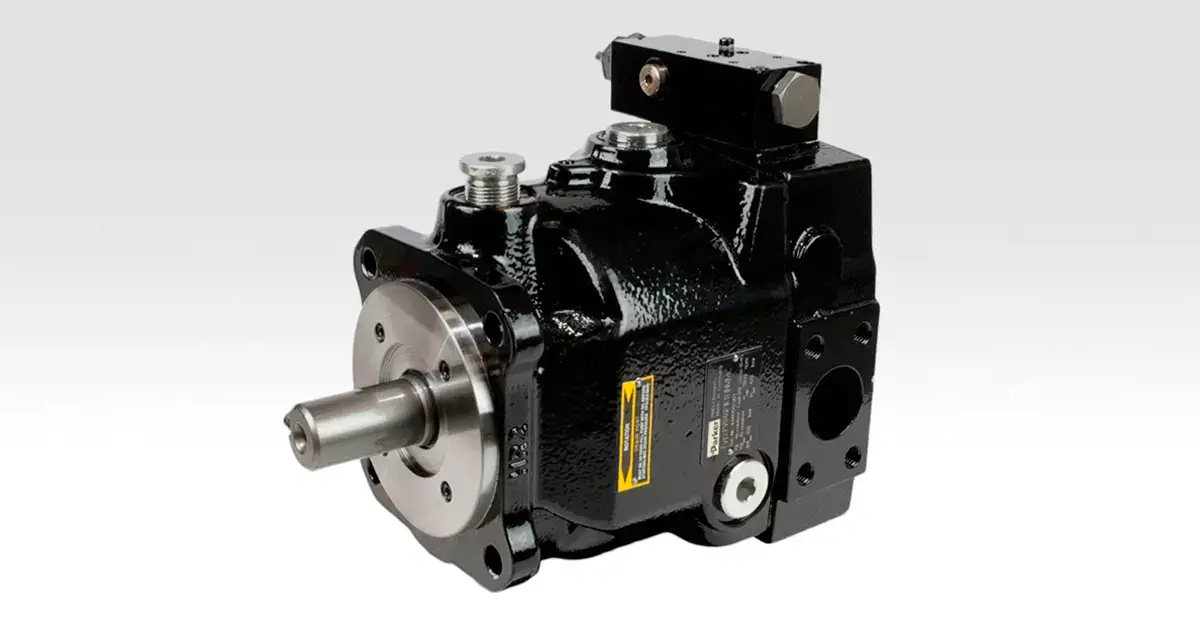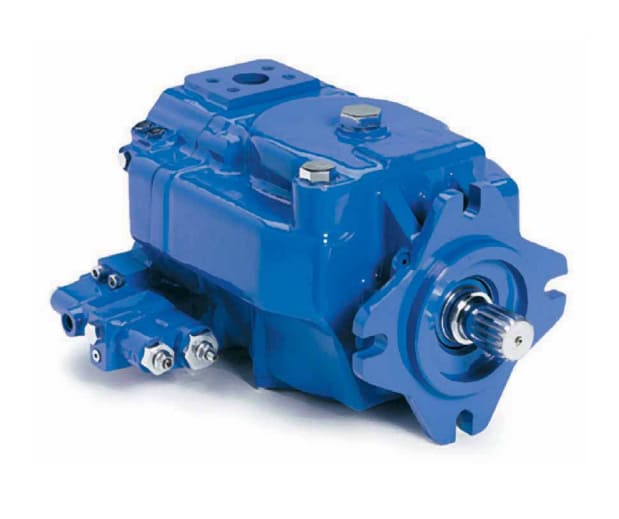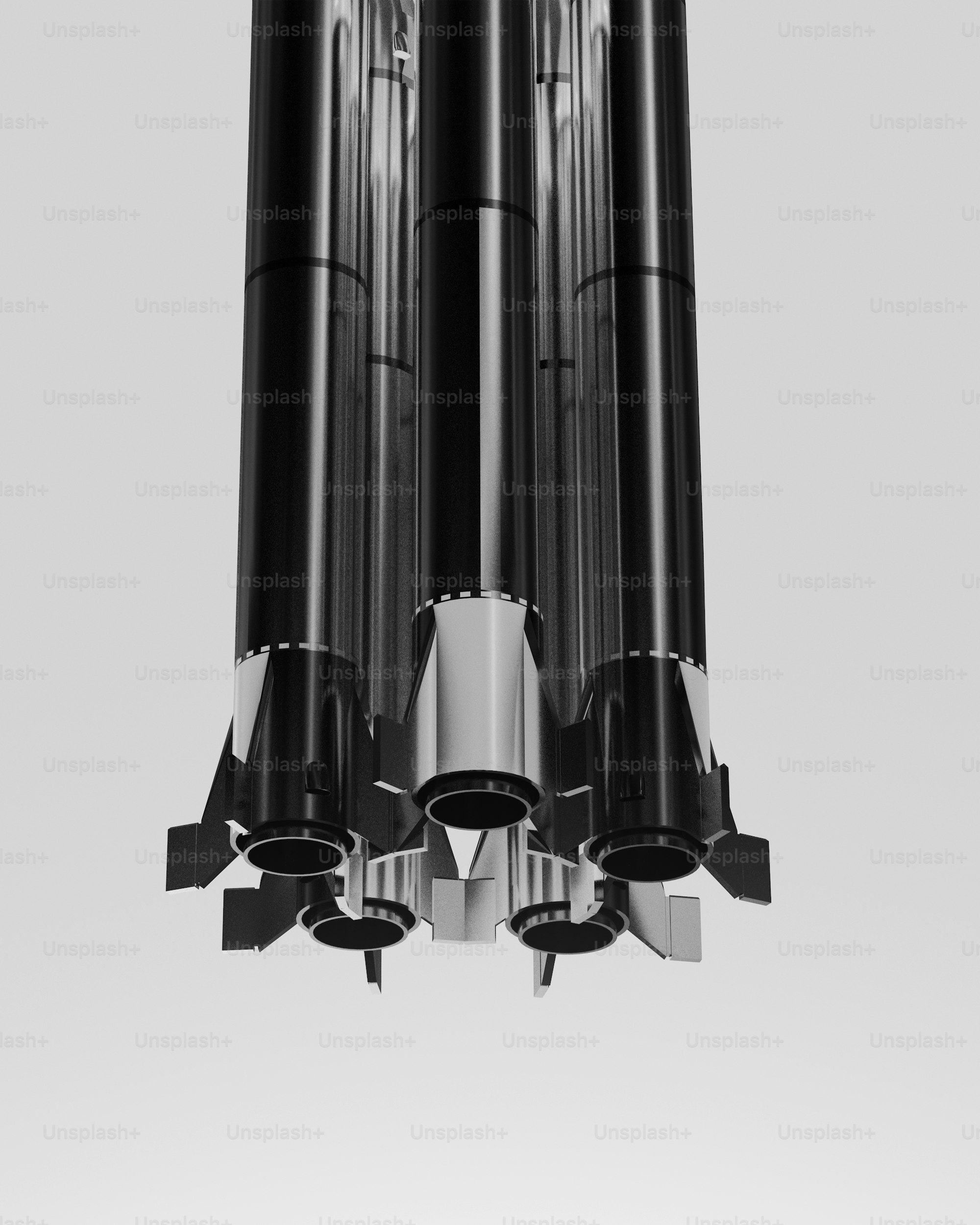Hydraulic Piston Pump
Hydraulic piston pumps are mechanical devices used to move hydraulic fluids, usually oil, from one location to another. They are widely used in hydraulic systems of industrial machines and equipment, such as excavators, car assembly lines, cargo elevators, and cranes.

Operating Principle
The hydraulic piston pump works based on Pascal's principle, which states that the pressure applied at one point of an incompressible fluid is transmitted equally in all directions.
The pump consists of a cylinder with a sliding piston and one or more inlet and outlet valves. When the piston is moved in or out of the cylinder, it generates a vacuum at the pump inlet, causing the fluid to be aspirated through the inlet port.
The inlet valve closes automatically when the piston moves out of the cylinder, preventing the fluid from returning to the reservoir. The fluid is then compressed when the piston moves into the cylinder, increasing its pressure and forcing it out through the outlet valve.
Types of Hydraulic Piston Pumps
There are several types of hydraulic piston pumps, each with its own characteristics and applications. Some of the most common types are:
- Single Cylinder Pumps: These are the simplest and most economical hydraulic piston pumps. They have a single cylinder and piston, and are capable of generating moderate pressures.

- Multi-Cylinder Pumps: These pumps have multiple cylinders and pistons arranged in a straight line, V-shape, or spiral. They are capable of generating higher pressures and flows than single cylinder pumps.
- Axial Pumps: Axial pumps have cylinders and pistons arranged in a straight line, parallel to the motor rotation axis. They are more compact and lighter than multi-cylinder pumps and are used in high-speed applications, such as machine tools and construction equipment.
- Radial Pumps: Radial pumps have cylinders and pistons arranged around the motor rotation axis. They are used in low-speed applications, such as agricultural and mining equipment.

Advantages and Disadvantages
Hydraulic piston pumps have some advantages over other types of hydraulic pumps, such as:
- High Efficiency: Hydraulic piston pumps have high mechanical efficiencies, which means they convert a large part of the engine energy into hydraulic energy.
- High Pressure: They are capable of generating very high pressures, which makes them suitable for application in high-pressure hydraulic systems.
- Low Sensitivity to Viscosity: The performance of hydraulic piston pumps is not as affected by fluid viscosity as vane pumps.
However, they also have some disadvantages, such as:
- High Cost: Hydraulic piston pumps are generally more expensive than other types of hydraulic pumps.
- Regular Maintenance: They require regular maintenance, such as oil changes and lubrication of pistons and cylinders.
- Noise: Hydraulic piston pumps can be quite noisy in operation.

Application
Hydraulic piston pumps are used in a variety of industrial and commercial applications, such as:
- Industrial Machines and Equipment: Hydraulic piston pumps are used in hydraulic systems of industrial machines and equipment, such as hydraulic presses, car assembly lines, excavators, and cranes.
- Mobile Equipment: Hydraulic piston pumps are used in hydraulic systems of mobile equipment, such as tractors, backhoe loaders, and construction assembly lines.
- Energy Storage Systems: Hydraulic piston pumps can be used in hydraulic energy storage systems, such as solar and wind energy storage systems.
- Transportation Systems: Hydraulic piston pumps can be used in transportation systems, such as oil and gas transportation systems.
